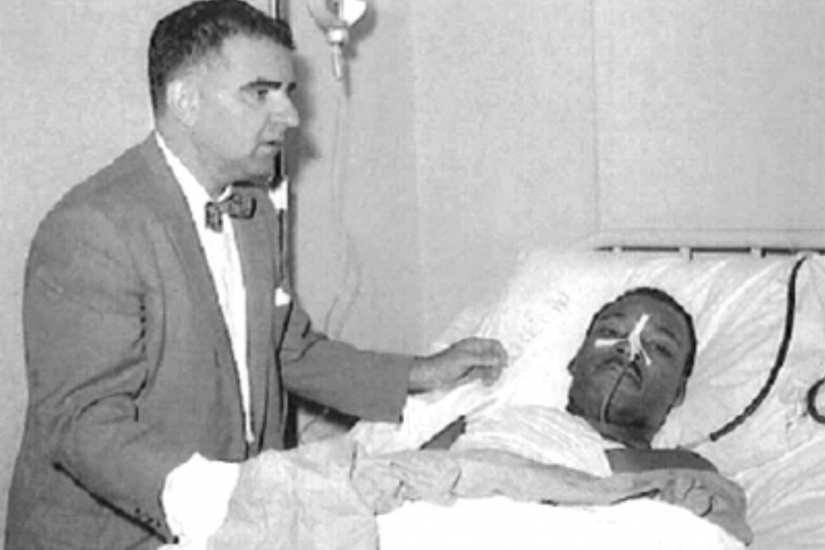King’s visit to the hospital became a source of pride for everyone involved. “For [King] to be brought to Harlem Hospital for a dangerous thing like that, where his life was at stake, it was a challenge,” Aubre Maynard, one of the black surgeons who operated on King, told the Times in 1996. “You see, it was a city hospital, and it was looked down upon.”
Al Cohen, the director of a soon-to-be-released documentary about King’s stabbing, recently explained the episode like this to me: “This was early on in Dr. King’s career, and at that particular time, he hadn’t yet risen to the prominence level that we know of him. And Harlem Hospital rallied to save his life, to give him the 10-year legacy that we know today.”
The episode not only proved that Harlem Hospital could handle a high-profile, high-pressure case; it eventually became woven into the very legacy of the institution. According to White, the staff still celebrates September 20 as the day Harlem saved King and the civil-rights movement. The story cemented Harlem Hospital’s place in black history.
Toward the end of our conversation, White—who has worked at the hospital for 25 years—reminded me that she had also known my grandfather. “Your grandfather is actually one of the people of whom we talk about when we talk about the legacy of Harlem Hospital, too,” she said, referring to a presentation she gives on the hospital’s history. “We actually mention Dr. Felton because of his work in eradicating tuberculosis in this community.”
I had known, dimly, that my grandfather’s research revolved mostly around tuberculosis, but I didn’t realize that the hospital factored him into its “legacy”—the same one that included New York City’s first appointment of a black doctor and King’s life-saving surgery. He was humble; he had never put his career in those terms for me. I could no longer ask him directly, so I began looking for the legacy that lay beyond what my grandfather ever voiced himself.
It happened that, by the time my grandfather was the director of Harlem Hospital’s pulmonary division in the late 1980s, New York City was witnessing the beginnings of a tuberculosis epidemic. The disease was a well-known scourge of minority inner-city communities, but had been declining in New York for most of the 20th century. Then, the halt of federal funding for preventative measures in the ‘70s, coupled with the rise of drug-resistant strains and of HIV, led to its sudden resurgence.
